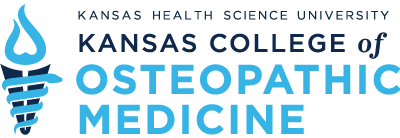KansasCOM Financial Aid Process
- Complete the Free Application for Federal Student Aid (FAFSA) – School Code G43007
- Complete the required entrance counseling.
- Complete the Master Promissory Notes for the Direct Unsubsidized and Direct Graduate PLUS loans, if applicable.
Verification of Student Financial Aid Information
Federal verification is a process that requires institutions to verify the accuracy of information provided on a student’s FAFSA if randomly selected by the Department of Education in an effort to assure federal aid is distributed to those who are eligible.
Schools may be required to verify all or any of the following criteria:
- Adjusted gross income (AGI)
- U.S. income tax paid
- Education credits
- Untaxed IRA distributions
- Untaxed pensions
- IRA deductions and payments
- Tax-exempt interest
- Income earned from work
- Household size
- Number in college
- High school completion status
- Identity/state of educational purpose
Determining Amount of Financial Aid
Once the student has submitted all required documents and completed forms as listed on the application for financial aid, the Office of Financial Aid determines the student’s aid eligibility at KansasCOM. Offering of financial aid is finished when the file becomes complete for packaging.
All financial aid offers, which include federal, state, and private programs, will be determined within federal financial aid guidelines. The calculation to determine financial aid eligibility is: cost of attendance (KansasCOM student budget) minus expected student and family contribution from FAFSA (for need-based aid) and outside resources (e.g., scholarships, etc.) equals eligibility.
Cost of attendance – Expected student and family contribution – Outside resources = Aid eligibility
The comprehensive student budget has been designed to cover tuition, educational costs, and reasonable living expenses for each academic year. Budgets are designed for the student only and are not intended to cover family living expenses or to cover debt incurred prior to attendance at KansasCOM.
Notification of Financial Aid Offer
Students will be notified via email to log in to KansasCOM’s online financial aid application to view the aid and accept, decline, or reduce the aid offered. The offer notification in the online application shows the cost of attendance (student budget) according to the student’s program or class and the total annual financial aid the student may receive from all sources. Beyond the sources of assistance indicated on the offer notification, a student may seek out private scholarships. Financial aid awards can be increased, decreased, or canceled at any time due to outside financial resources (tuition waivers and scholarships), pending required documentation, corrections to documentation, funding availability and/or enrollment adjustments. After any adjustments, students will receive an email notification of a revised electronic financial aid notification.
Disbursement of Financial Aid
- Financial aid disburses one week prior to the start of each term.
- Financial aid will automatically be applied to the tuition and required fees posted to the student’s account. If the financial aid funds exceed the amount due on the billing statement, the student will have a credit balance on the account.
- The student will receive the credit balances of excess financial aid funds from the Office of Student Accounts via Electronic Funds Transfer (EFT). The EFT will be delivered to the bank account on file that the student selected during the direct deposit account setup.
- Credit balance refunds are typically available seven to ten business days from the disbursement date. However, the refund process may take up to 14 days to complete.
- To ensure timely receipt of student account refunds, KansasCOM strongly encourages all students to sign up for direct deposit.
- Paper checks will not be issued for refunds of less than $3.
- The student can check the disbursement date on the award letter.
Loan Repayment and Forgiveness Programs
Kansas State Loan Repayment Program
The State Loan Repayment Program (SLRP) offers eligible health care professionals assistance with the repayment of qualifying educational loans in exchange for a minimum two-year service commitment at an eligible practice site in a federally designated Health Professional Shortage Area (HPSA). Learn more.
Loan Forgiveness Program for Veterans
Requirements vary by state. To learn more, please click here: The Full List of Student Loan Forgiveness Programs by State (thecollegeinvestor.com)
Scholarships
Internal Scholarships
KansasCOM scholarships may be awarded on the basis of academic achievement, merit, leadership, financial need, geographical location, and community service. All KansasCOM scholarships will be applied toward tuition. To learn more about the scholarships that KansasCOM has to offer, click here.
External Scholarships
Students are encouraged to apply for outside/private scholarships. Several popular search engines are available for students to search for medical school-related scholarships including:
Students should be vigilant when applying for outside/private scholarships and know how to spot a scholarship scam. If it sounds too good to be true, it usually is. Scholarship scams frequently involve one or more of the following:
- Scholarship fees: Do not spend money in order to apply for any scholarship.
- Request for financial information: Do not share bank account or credit card information.
- Guaranteeing scholarship money: Reputable scholarship don’t advertise guaranteed money.
Students must inform the Office of Financial Aid of any scholarships and awards received from sources outside of KansasCOM. Students can notify the office by emailing the name and amount of the scholarship or award. These scholarships and awards will be added to your financial aid package and may impact your aid eligibility. Browse external scholarships.
Financial Aid Policies and Procedures
Financial Aid Privacy and Disclosure Policy
All information about individual student financial aid is strictly confidential and can only be used for the purpose of determining and administering the student’s financial aid. Persons with legitimate audit responsibilities are permitted access to individual folders. Whenever possible, the selection of folders is completed randomly.
Schools are limited by federal law in how the Free Application for Federal Student Aid (FAFSA) information can be used. Schools may share a student’s FAFSA information with scholarship-granting or tribal organizations only with the student’s written consent. However, KansasCOM may be prohibited from sharing FAFSA data with other third-party organizations, even where the student has given written consent.
Cost of Attendance
A comprehensive student expense budget, or cost of attendance (COA), has been designed to cover tuition, educational costs, and reasonable living expenses for each academic year. The COA is designed for the student only and is not intended to cover family living expenses or to cover debt incurred prior to attendance at KansasCOM.
The Office of Financial Aid takes seriously its responsibility to provide a reasonable COA and to monitor long-term student debt. Based upon these principles, all financial aid awarded, which includes federal, state, and private programs, will be determined within federal financial aid guidelines and the limits of the student COA.
Each year, the Office of Financial Aid builds a COA that includes the following:
- Tuition and fees
- Room and board (or a housing and food allowance)
- Books and supplies
- Transportation
- Loan fees
- Miscellaneous and personal expense
- COMLEX exam fees (DO program only)
Other expenses that may be added to a student’s cost of attendance through a budget adjustment process may include:
- One-time purchase of a personal computer
- Costs related to a disability
- Reasonable costs for eligible study-abroad programs or faculty-led trips for students
- Child and dependent care
- Medically necessary medical and dental expenses not covered by insurance
- Car repairs for one primary vehicle
For more information on this process, please review the Budget Adjustments section.
Know Before You Owe
Review our pricing sheet and compare to other schools to determine which option is best for you. For more information, contact our Financial Aid office at 833.984.3360 or at [email protected].
Consumer Information
In compliance with federal student aid regulations, KansasCOM consumer information is available for prospective and current students to review online.
Satisfactory Academic Progress
Students who receive federal financial aid must, in accordance with federal regulations, be in good standing and maintain Satisfactory Academic Progress (SAP) toward their degree. Under federal Title IV law, the school’s SAP requirements must meet certain minimum requirements and be at least as strict as the institution’s established standards for Good Academic Standing. This policy applies to all students receiving federal financial aid for any period of enrollment at KansasCOM.
The standards used to evaluate academic progress are cumulative and, therefore, include all periods of the student’s enrollment, including periods during which the student did not receive federal financial aid funds.
What is the KansasCOM SAP policy?
To continue receiving federal financial aid at KansasCOM, students must demonstrate satisfactory progress toward their academic objectives. Federal regulations require three measurements to determine SAP: qualitative, quantitative, and timeframe.
Qualitative Review
In determining student’s academic progress, the Office of Financial Aid follows the KansasCOM Student Promotions and Performance Committee academic review process, which is established for all students regardless of financial aid eligibility and meets the minimum Title IV academic policy requirements.
KansasCOM computes grades and uses a grade point average to determine a student’s class rank and whether they are passing their courses. Students at KansasCOM must maintain a grade of 70% or higher in order to pass all courses.
Quantitative Review
Students must have academic standing consistent with KansasCOM’s curriculum and graduation requirements to maintain continued financial aid assistance. To meet graduation requirements, students must successfully complete the prescribed courses of study of the first through the fourth years.
To be making academic progress, students must have completed the first two years of the curriculum by the end of the third year of their initial enrollment. This requires a 100% course completion rate in Years 1 and 2. Courses attempted and completed will be evaluated during the annual review to determine the student’s required course completion for progression to the next year.
Repeating an Academic Year
Repeating an academic year can have significant financial ramifications for any student. In the event a student is required to repeat an academic year, or the student requests to repeat a year, the student should always talk with the Office of Financial Aid to understand the impact of that decision on their overall financial situation.
Repeating courses will impact your Satisfactory Academic Progress and subsequently may impact your continued financial aid eligibility.
Loan Programs and Sources
Federal Direct Unsubsidized Loan: Department of Education Title IV
This loan program is non-need based. Medical students can borrow up to $42,722 per academic year (students enrolled for more than 9 months may be eligible for additional funds-see below).
- Medical Students (enrolled for 10 months)- $42,722
Interest accrues from the date of disbursement; the student is responsible for interest during all periods. The Department of Education (ED) is the lender. Payment is owed to the Department of Education but serviced by a company contracted with ED. Unpaid interest will capitalize at repayment.
- Current interest rate and origination information can be found on the Federal Student Aid Website. An origination fee is charged and deducted from the loan proceeds prior to the disbursement to the institution on the student’s behalf.
- Direct loans offer a six-month grace period after you graduate or drop below half-time enrollment.
- The cumulative maximum direct loan limit for graduate students is $138,500.
- The cumulative maximum direct loan limit for medical students is $224,000.
- Repayment information for this loan program is available on the Federal Student Aid Website. Students may log in to the repayment estimator to view current federal loan balances and see estimates for future monthly payment plans.
Federal Direct Graduate PLUS (GradPLUS) Loan Department of Education Title IV
This loan program is non-need based. A GradPLUS loan is a federal guaranteed credit-based loan. A credit check is required.
- This loan has a higher interest rate than the Federal Direct Unsubsidized Loan.
- The loan does not have an aggregate limit.
- The GradPLUS enters repayment immediately after it is fully disbursed, at which time it is placed in an in-school deferment while the student continues school.
- The loan enters a six-month post-enrollment deferment at the time the student is no longer enrolled. The same deferment and forbearance options apply as with federal direct loans.
- Repayment information for this loan program is available on the Federal Student Aid Website.
Return of Title IV Funds
A student who receives Federal Financial Aid funding and who completely withdraws from the institution is subject to the Return of Title IV Funds policy. The amount to be returned is based on the percentage of enrollment completed for the trimester and the amount of financial assistance considered earned. KansasCOM and the student are both responsible to return unearned funds to the appropriate Title IV program(s) in the order of: Graduate PLUS, Direct Unsubsidized, where applicable. It is recommended that a student who receives financial aid connect with the Office of Financial Aid prior to withdrawing to determine if they will leave the school with a balance on their student account. If a balance is owed to KansasCOM, the student must immediately contact the Office of Student Accounts to make payment arrangements.
Private and Alternative Loans
A student may choose to borrow a private loan after receiving counseling in regard to the advantages of federal loans versus private. In accordance with Sec. 128 €(3) of the Truth in Lending Act (15 U.S.C. 1638(e)(3), a self-certification form is provided to the student by the private loan lender during the application process.
The National Health Service Corps
The National Health Service Corps (NHSC) Scholarship Program was created to address the shortage of health professionals in certain areas in the United States. Scholarship recipients receive 12 monthly stipends, a single payment to cover books, supplies, and equipment as well as payment to the medical school for tuition and required fees. The scholarship may be renewed through graduation.
For each year of support, participants own one year of future service providing primary care services in a Health Professional Shortage area (HPSA) as assigned by the NHSC. The minimum obligation is two years. These assignments are most often as salaried civilian employees of community-based systems of primary health care.
Students interested in pursuing primary care in an undeserved area should consider the program offered by the NHSC including the National Health Service Scholarship, Students to Service loan repayment. Students should review each program to fully understand the service commitment owed for receipt of scholarship.
National Health Service Corps
Bureau of Primary Health Care
Division of Scholarships and Loan Repayments
Website
800-221-9393
Health Professions Scholarship Program
To be eligible for the military scholarship, a student must be a U.S. citizen. Recipients are provided full tuition, fees, books, equipment, and a monthly stipend. For each year of scholarship support, the student must serve one year in the designated service branch. The minimum obligation is two years. The Health Professions Scholarship provides support that covers most of the expenses for a student; therefore, students receiving a Health Professions Scholarship generally do not qualify for federal financial aid.
For military programs, students should contact their recruiter or the appropriate recruiter from this list:
U.S. Army
Health Care Recruiting
2959 N. Rock Rd. #500
Wichita, KS 67226
316-262-2419
U.S. Navy
8035 E. Central Ave.
Wichita, KS 67206
316-682-5577
U.S. Air Force
Air Force Recruiting Office
4600 SE 29th St., Ste. 356
Del City, OK 73115
Budget Adjustment Categories
Child and dependent care: If a student pays for a third party to watch their dependent while their spouse works (full time), KansasCOM may increase the student cost of attendance for these expenses. The increased cost will not exceed a reasonable cost for dependent care in the community based on KansasCOM’s dependent care survey. Students must complete the Budget Adjustment Form and provide all required documentation that is specified on the form.
Computer purchase and electronic purchase: All KansasCOM students are required to have a laptop computer, meeting KansasCOM specifications. Only one increase is allowed per student’s academic program, unless there is a change in school policy requiring new computer specifications. The purchase can only include a laptop, printer, and other reasonable hardware and software required by KansasCOM. The maximum allowance is $2,000. Students must complete a Budget Adjustment Request Form. Students cannot request the adjustment in their final term of enrollment.
Medical and dental expenses: The student financial aid budget includes an allowance for medical and dental expenses and health insurance. It is KansasCOM’s policy that all students provide proof of health insurance and budget adjustments will be considered only for those students complying with that policy. A budget adjustment can be made for medically necessary procedures and medically necessary prescriptions for the amount that exceeds the budget allowances. A student’s out-of-pocket expenses cannot exceed $5,000 per academic year. Students must provide written verification of health insurance coverage. Prior year expenses will not be considered for an increase.
Tuition adjustment: Students may receive a budget adjustment for tuition charges in excess of what is allowed in the Cost of Attendance. If this occurs, the Office of Financial Aid will notify the student via email.
Car and vehicle repairs: While a student’s financial aid budget includes an allowance for maintenance of a vehicle, an adjustment can be made for car repairs that exceed the budgeted amount. Financial aid budgets cannot be increased for the purchase of a vehicle. Expenses above the budgeted amount are covered on one primary vehicle per year. Once a student has submitted receipts for a vehicle, that vehicle becomes “primary” in terms of consideration for budget appeals. The budget adjustment increase will represent the difference between the actual repairs and budget allowance. Receipts must be submitted for any repairs for which the budget adjustment is being requested. Since the cost of attendance includes an allowance for comprehensive and collision car insurance, a budget adjustment for an accident will cover a reasonable deductible of $500. If the student has not purchased comprehensive and collision care insurance, the Office of Financial Aid will not increase the budget to cover any expenses that would have been covered by insurance.
Other expenses: Students having other extenuating circumstances should complete the appropriate section of the Budget Adjustment Request Form and make an appointment to meet with a staff member in the Office of Financial Aid.
Non-allowable expenses: The following expenses will not be considered for reimbursement:
- Vehicle purchase
- Household repairs (water heaters, furnace, etc.)
- Expenses related to pet ownership
- Private student loan payments
- Car payments
- Credit card debt
- Moving costs and housing furnishings
- Vacation expenses
- Tithing expenses
- Child support
- Living expenses for spouses and children
Financial Aid Ramifications for a Leave of Absence
For Title IV purposes, a leave of absence (LOA) may be designated as either unapproved or approved for financial aid purposes. An LOA that does not meet all the financial aid regulatory conditions for an approved LOA is designated as unapproved and considered a withdrawal. In this case, a Return to Title IV (R2T4) calculation is required, and the withdrawal date is the date the student begins the LOA.
Students should contact the Office of Financial Aid prior to going on an approved leave of absence to determine any financial aid implications this may have on their federal financial aid eligibility.
Financial Aid Fraud Misreporting and Misrepresentation
Any student found to have misreported information or altered documentation to increase their student aid eligibility or to fraudulently obtain federal funds may face any or all of the following disciplinary actions:
- Subject to all Professional Code of Conduct policies
- Per federal regulation 668.14(g), referral to the Office of the Inspector General of the DOE, or, if more appropriate, to a state or local law enforcement agency having jurisdiction to investigate the matter
- Loss of participation in federal financial aid programs for either the current academic year or the remaining years of enrollment
In the event the Office of Financial Aid finds evidence of willful misrepresentation or fraud, the student will meet with financial aid leadership and the Associate Dean for Student Affairs and Services. At that time, disciplinary action will be discussed with the student.
Code of Conduct for KansasCOM Financial Aid Professionals
The Office of Financial Aid is a member of the National Association of Student Financial Aid Administrators (NASFAA). NASFAA developed an ethical set of standards related to a Financial Aid Code of Conduct.
Statement of Financial Aid Ethical Principles
NASFAA members are required to exemplify the highest level of ethical behavior and demonstrate the highest level of professionalism. All KansasCOM financial aid professionals, declare their commitment to the following Statement of Ethical Principles.




